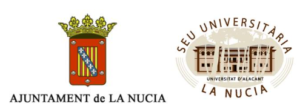July 8th 2025, University of Alicante
Presentation
In an increasingly interconnected and technologically advanced world, the relevance of Artificial Intelligence (AI) in all aspects of society continues to grow at a rapid pace. From education to health, and through any field linked to research and development, AI is transforming how we interact, learn, and work. However, the rapid adoption of these technologies also poses significant challenges in terms of ethics, privacy, employment, and equity, among others, that must be urgently addressed.
The II International Workshop MEEBAI (IWMEEBAI ’25) arises as a response to the pressing need to discuss and analyze these critical issues. The motto of this edition, namely “Artificial Intelligence for lifelong learning“, directly indicates the main theme of this meeting. We explore the possibilities of AI to revolutionise the way we learn throughout our lives.
It is not only an opportunity to stay up-to-date with the latest trends and developments in the application of AI, but it also fosters essential dialogue on how we can guide the evolution of AI to ensure that its benefits are maximized and its risks minimized when it comes to Education. It is crucial that we collectively understand how AI can be used to empower rather than limit, to include rather than exclude, thereby ensuring a future that reflects our shared values and common aspirations.
IWMEEBAI ’25 stems from the MEEBAI Project: A Methodology for Emotion-Aware Education Based on Artificial Intelligence. The funding entity is the Generalitat Valenciana, Conselleria d’Innovació, Universitats, Ciència i Societat Digital, Direcció General de Ciència i Investigació (convocatoria DOGV núm. 8919 / 05.10.2020), Project reference: CIPROM/2021/017.
The MEEBAI project is led by Profs. Miguel Cazorla and Rosabel Roig Vila, Professors at the University of Alicante and directors of the research groups Robotics & Tridimensional Vision Research Group (RoViT) & Interdisciplinary Research in University Teaching – Education and Information and Communication Technologies / Inclusive Education (GIDU-EDUTIC/IN), respectively.
Objective
The main objective of IWMEEBAI is to provide a space for reflection on the possibilities offered by technology in the field of psychoeducation in a context mediated by Artificial Intelligence.
During this meeting, researchers from the fields of computer science, health, psychology and education will share their knowledge and experiences on how applying technological systems to neurons can be key to empowering older people and fostering their independence.
Participants will be able to explore a wide range of topics, from innovative medical devices to mobile health applications, home assistance systems, wearables and much more. In addition to expert presentations, there will be space for interaction and discussion. Attendees will have the opportunity to ask questions, share experiences and make connections with other professionals, researchers and people interested in the field.
In addition, there will be the opportunity to participate as speakers in the scheduled paper sessions. The contributions received will be evaluated by a double peer review and those accepted will be included in the conference programme.
In short, this conference is a space where the aim is to promote research, talent, learning, collaboration and innovation in the field of technology and active ageing.
We look forward to seeing you and sharing this journey towards a healthier and technologically empowered future.
Recipients
Organisers


In collaboration with:

